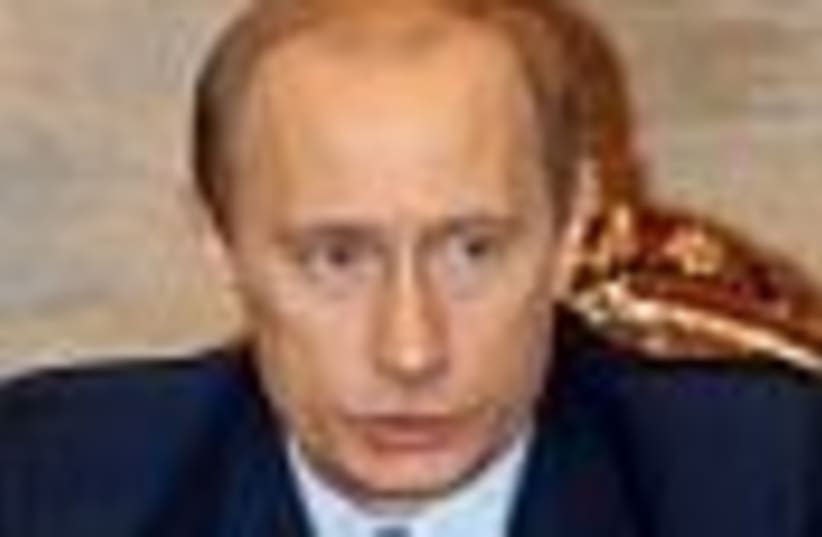Moscow, which this week said it would oppose the imposition of UN sanctions on Syria, has a long and traumatic history with the Middle East.
For the czars, the region was part of a strategic aim and religious quest. Russia had a consistent desire to acquire access to warm seas as well as a foothold in the Holy Land. The ensuing clash with the Ottoman Empire, thanks to which Russia steadily expanded southward, is as famous as it was bloody. For the communists, the Mediterranean basin was even more crucial, as it became a major arena in their rivalry with the West.
Initially, this was good news for the Jewish state. Eager to jab Britain, the Kremlin backed Israel's establishment and initially helped arm it. Soon after that, however, Moscow threw in its lot with the Arab world, whose thirst for arms was unquenchable and whose vulnerability to Soviet economic manipulation was obvious.
The result was a neocolonialist grip whose disastrous effects are still palpable across the Middle East - from Algeria, whose mineral wealth was squandered by a catastrophic exercise in collectivization, to Yemen, whose lucrative role as a commercial crossroads gave way to civil war and anarchy.
No country in the Middle East emerged as a more loyal and subservient Soviet satellite than Syria, whose pre-modern economy was abandoned in favor of a lunatic aim to accomplish "strategic parity" with Israel - a euphemism for unlimited arms purchases. That relationship was brought to an abrupt end even before the fall of communism, when Mikhail Gorbachev realized Moscow's Middle East policy was unjustifiably costly: diplomatically, since it helped nurture international tension, but also economically, since Damascus had accrued a $5 billion debt in unpaid arms purchases.
The consequent restoration of ties with Israel and the freeing of Soviet Jewry seemed, throughout the 1990s, to naturally coincide with a newly business-minded Moscow's rational attitude toward the Middle East. Unfortunately, as with other parts of Vladimir Putin's record, such a positive impression has now proven premature.
A riddle to many Western observers during his rise to Russia's presidency, it has since become clear that while Putin shared the West's disdain for the communists who preceded him, he did not necessarily share its enthusiasm for the democrats who succeeded them. In his authoritarian handling of the economy, media and political system, Putin has made it plain that rather than a Jeffersonian democrat he is an enlightened absolutist, perhaps deriving his inspiration from Peter the Great, a large painting of whom dominates his Kremlin office.
As such, Putin is loath to share power with the people - whether as lawmakers, entrepreneurs or journalists - and is keen on restoring Russia's imperial sway. Perhaps that is what has drived him into a dangerous nuclear waltz with Iran, which some believe he still sees as a counterbalance to Turkey, Russia's historic rival in the Near East and Central Asia.
Now this attitude, already anachronistic, is driving Putin to adopt one of the old USSR's most cynical and self-destructive diplomatic axioms, namely that what is good for Damascus is good for Moscow.
Perhaps Putin's main mistake is in confusing the moral and expedient aspects of the Syrian situation. Apparently, Putin is not impressed by the specter of a regime murdering a major politician in a neighboring country, and at the same time he remains captured by the vision of that very regime feeling as indebted to him as Hafez Assad felt to Leonid Brezhnev.
Enlisting Putin to the moral cause that the rest of the world now espouses vis- -vis Syria may unfortunately be a non-starter, but on the expedient side there may still be hope to convince him that what he is fighting in Chechnya is not czarist-era secessionism but modern-day terrorism, which in turn demands resolute, universal and coordinated confrontation.
Failing to join the burgeoning Euro-American siege on Damascus would be tantamount to a broader rejection of Peter the Great's overriding strategic aim, which was to force Russia into joining Western civilization. Russia must choose: Is it with the West, or with the rogues?
| More about: | Vladimir Putin, Mikhail Gorbachev, Leonid Brezhnev, Bashar al-Assad |
